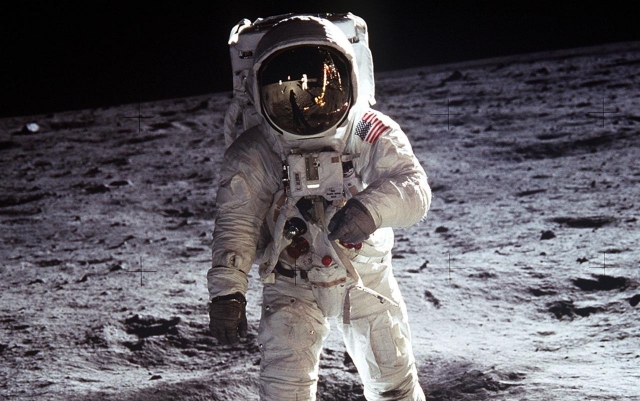One Giant Leap – 50 years since the Apollo 11 Moon landing

“One small step for a man, one giant leap for mankind” is one of the most famous sentences of the 20th century, and it was about science and exploration not conflict – or was it?
For centuries humanity has stared at the Moon and attributed to it portents of good and bad. It has held a fascination and a fear for many. Myths and legends abound about the circular-looking rock that is with the Earth but apart from it, apparently within touching distance yet just out of reach, and to get to it has been a desire for scientists throughout the modern era. As the ability to fire rockets further and further into the air was developed the idea that the Moon was in reach became a reality.
The Moon landing on 20-21 July 1969 was the culmination of a race to demonstrate human achievement and advancement, but it was also a demonstration in capability and power. The Soviet Union had been the first country to successfully send a man into space and to have him return, and the Americans were not going to let the Russians keep their dominance in a whole new world. The Cold War had started in the 1950s (some would say the 1940s), and by the 1960s the desire between East and West and in particular between the USA and the USSR to outshine and out-fire each other was reaching its peak. To get to the Moon, land on it and return seemed like an impossible task when John F. Kennedy said it would happen in 1961, but having said it the Americans had to make it happen. It was a war being played out by scientific one-upmanship and this was the ultimate science dare.
The technology that was developed to make the dream happen would and does affect weaponry development – it was not all about exploration and pushing boundaries. Nonetheless the science was also daring, innovative and ground-breaking. The human contribution and risk-taking of the men and women of NASA was also reminiscent of the explorers of earlier generations.
The successful Apollo 11 lunar landing of July 1969 may have signified a battle won in the Cold War but it was also a significant achievement of humanity and science. Fifty years later it seems worth celebrating these positives rather than some of the negatives that drove it to happen.

